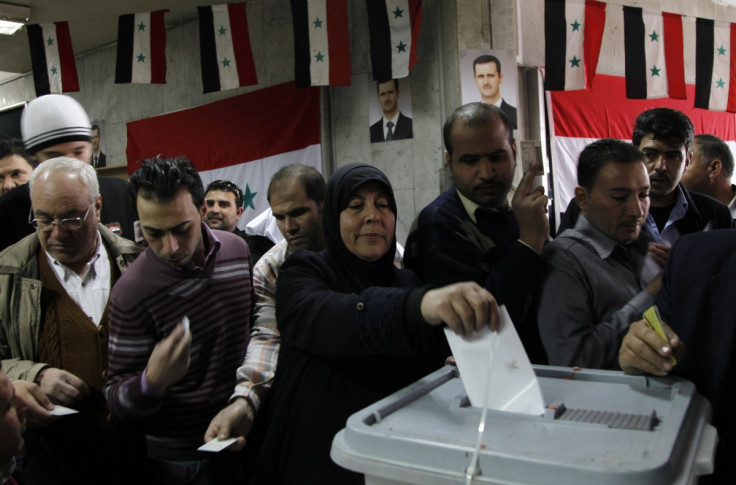Syria Presidential Election 2014: Who are the Candidates in 'Sham' Election?

Syria is holding its first presidential elections today since the civil war began in 2011. Aside from current president Bashar al-Assad, just two candidates are in the running in an election dubbed a "sham" by critics.
Who are Assad's competitors?
Only two candidates out of 24 met the criteria to run for the presidency, after first being scrutinised by Assad who declared them suitable to run for the post.
Hassan Abdullah al-Nouri and Maher Abdul-Hafiz Hajjar are mostly seen as symbolic contenders and little know political figures. They are both supportive of the current regime.
Hassan Abdullah al-Nouri
Born in Damascus in 1960, al-Nouri earned a Bachelor's Degree in Economy and Trade from the University of Damascus in 1982.
He also earned a PhD in General Management (Human Resources Development) from John F Kennedy University in 1989.
Al-Nouri worked as Secretary of the Damascus Chamber of Industry between 1997-2000. He was an MP from 1998-2003 and Minister of State for Administrative Development Affairs from 2000-2002.
He is the head of the National Initiative for Administration and Change in Syria, the domestic opposition tolerated by Assad's government.
In various interviews, Al-Nouri expressed his support of Assad's political policies and handling of the uprising.
"When you find a leader like [Assad], fighting this kind of war and this unbelievable terrorism, terrorist action in every place in our country, you have to respect what he's doing," al-Nouri said in a statement.
Maher Abdul-Hafiz Hajjar
Born in Aleppo in 1968, Hajjar graduated from Aleppo University with a diploma in Linguistic Studies.
Local reports describe Hajjar as a long-time communist who later joined the National Committee for the Unity of Syrian Communists led by the controversial communist leader Qadri Jamil, who supported Bashar Assad.
When the group changed its name to the Popular Will Party, Hajjar became secretary of the party's council.
Hajjar stood as an independent in the 2007 parliamentary election but was not elected. He stood again in the 2012 parliamentary election for Aleppo city; he won and came second in the number of votes for independent candidates.
Like Nouri, Hajjar is equally supportive of Assad's political handling of the uprising.
According to the Syrian Observer, Hajjar's candidacy provoked a storm of derision among the Syrian opposition, with comments suggesting his campaign has been organised by the regime to legitimise the current elections.
Election criticism
The Syrian opposition and its Western allies have denounced the election as a sham designed to bestow on Assad electoral legitimacy.
"We know that they're a sham, not real," says Khalid Saleh, spokesman for the main opposition coalition, the Syrian National Coalition, founded in 2012 and aimed at overthrowing the current regime.
"Everybody is wondering whether Assad is going to win by 99.8 or 99.9 percent."
Critics say that what could represent a step towards democracy in a country torn by a more than three years of civil war, seems instead to be just another attempt by Assad to hold on to the reins of powers.
This view is strengthened by the fact that the election is not taking place in areas held by the rebels, who demand the ousting of Assad.
© Copyright IBTimes 2024. All rights reserved.






